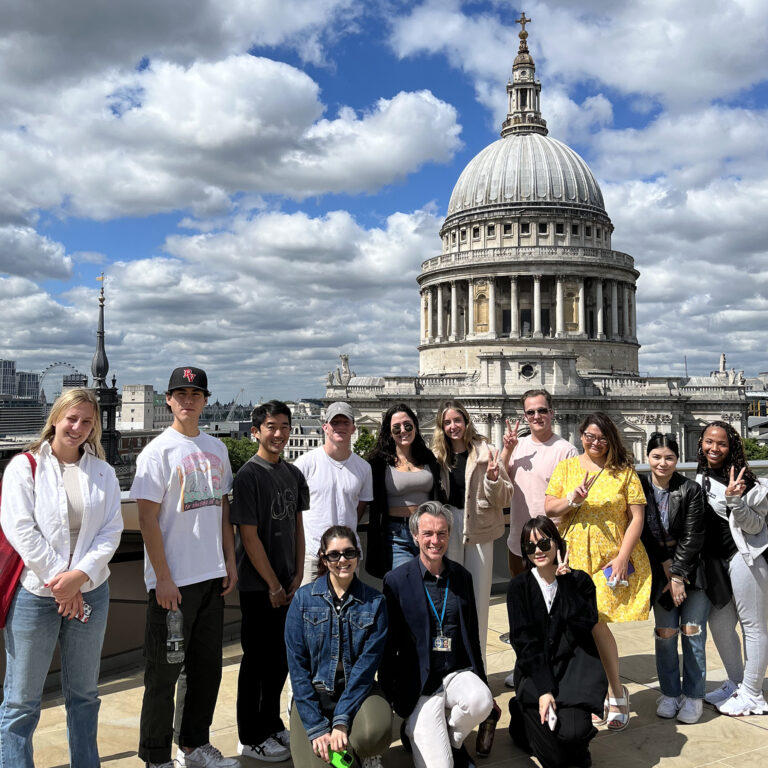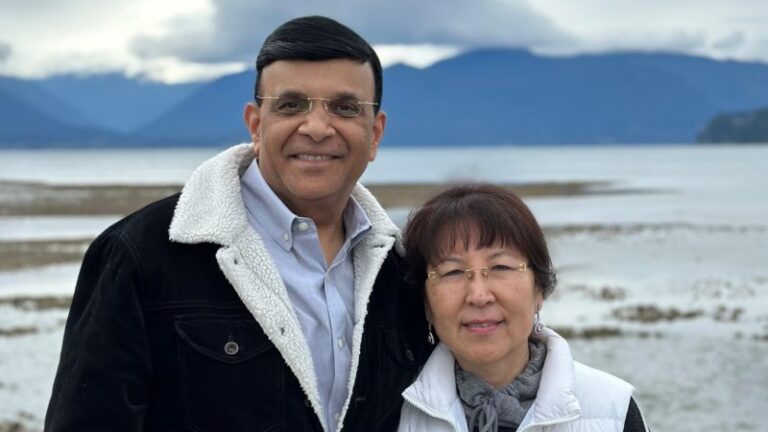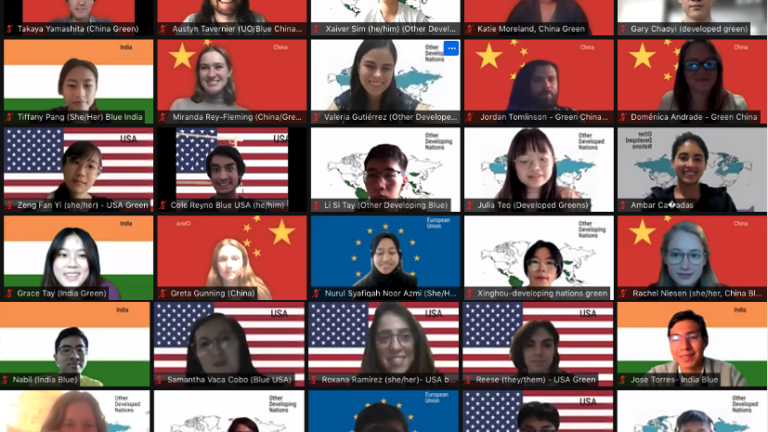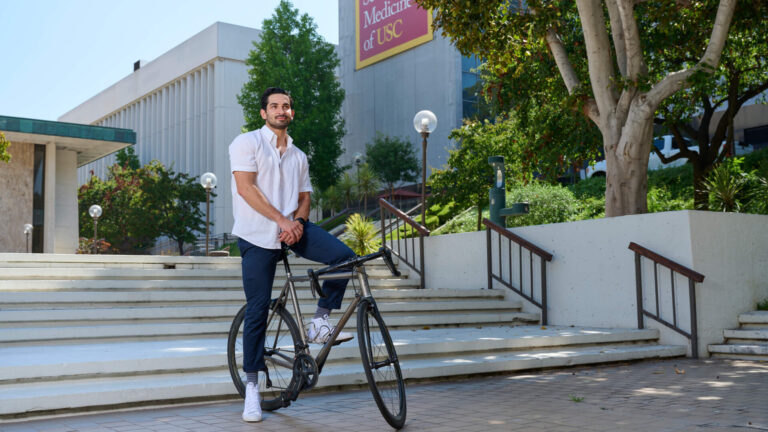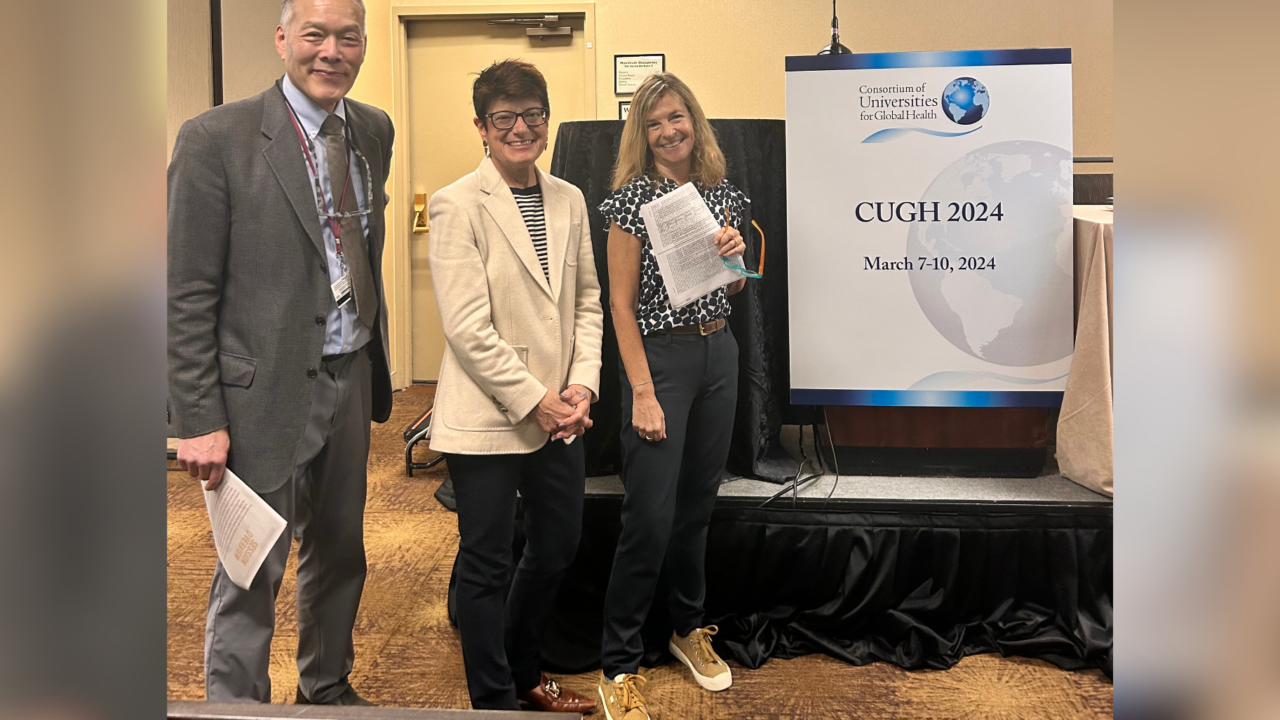
The USC Institute on Inequalities in Global Health united interdisciplinary experts to address cross-sector strategies for improving worldwide well-being.
USC Hosts Interdisciplinary Conference to Combat Global Health Issues
The USC Institute on Inequalities in Global Health united interdisciplinary experts to address cross-sector strategies for improving worldwide well-being.
As part of USC’s leadership in blending disciplines to address urgent issues, the Institute on Inequalities in Global Health co-hosted the 15th annual Consortium of Universities for Global Health (CUGH) conference from March 7 to 10, 2024, in Los Angeles. CUGH is a worldwide collaborative of more than 190 institutions dedicated to improving human and environmental health, and USC and the institute have been a crucial part of the consortium since 2012.
With its interdisciplinary focus, USC also exemplified the conference’s theme, “Global Health Without Borders: Acting for Impact.” And playing a pivotal role in organizing the event was Sofia Gruskin, institute director and USC Distinguished Professor of Population and Public Health Sciences and Law.
A conference highlight was the satellite session held by the institute and Department of Population and Public Health Sciences at the Keck School of Medicine of USC. Titled “USC Global Health: Crossing Boundaries for Innovation and Impact in Health Equity,” the free session spotlighted several examples of USC’s transdisciplinary endeavors in the global health arena.
Howard Hu — Flora L. Thornton Chair of the Department of Population and Public Health Sciences at the Keck School of Medicine— joined with Gruskin to present the session.
“USC has emerged as a leader in health-related research and educational partnerships around the world,” noted Hu, whose own commitment includes international investigations into the effects of toxic chemicals. “And, under Sofia Gruskin’s direction, the institute is one of the leading units in advancing this vital agenda.”
However, Keck and the institute are far from the only USC schools and centers that are promoting global health, Gruskin added.
“We used the CUGH conference and this session to bring together folks from across USC to present what they were doing,” she said, noting that the event also provided an opportunity to foster even greater interdisciplinary collaborations to enhance health locally and worldwide.
The satellite session attracted presenters and posters not just from the health care fields of medicine, pharmacy and gerontology, but also from law, anthropology, cinematic arts, communications, economics, public policy and social work. Its panels addressed health rights and disparities, pollution and climate change, infectious diseases and pandemics, sexual health, reproductive rights, climate change, the refugee crisis and more.
The session provided opportunities for USC students as well as faculty to showcase their global insights and innovations while reaching out for potential partnerships. For example, PhD student Anju Kane moderated the panel on how experiential learning enables students to build skills through firsthand efforts in advancing health equity. She also served on the steering committee that helped plan the session.
Kane, who earned her Master of Public Health (MPH) online at USC before returning for a PhD in population health sciences, appreciates how the institute engages students as full partners in global health outreach.
“I’ve always had an interest in health equity and grew up involved in activism and community service,” she said. “So, when I got to college, I was looking for something that combined my interests in advocacy and social justice with my passion for science and health.” She found that the institute embodies that fusion.
The session featured seven-minute “lightning” talks, during which presenters shared their backgrounds, research findings and opportunities for collaboration. Then, during coffee and tea breaks, participants got to know each other further as they networked and informally discussed ideas for future projects.
The CUGH conference was just the most recent example of how USC and the institute provide connections and opportunities for global health advocates. In addition to moderating, Kane had a research abstract accepted by CUGH for presentation at the overall event. The project, on which she partnered with Mellissa Withers, an associate professor at the Keck School of Medicine, examines the prevalence of perinatal depression in sub-Saharan Africa.
Kane counts Gruskin and Withers — who also directs the Association of Pacific Rim Universities (APRU) Global Health Program hosted at USC — as among her closest mentors at USC.
“Being able to work with Dr. Gruskin and Dr. Withers has given me a front-row view of what they’re achieving and how their research is being used to make a difference,” she said. “It’s inspiring and shows me that I’ll be able to make an impact in my career, too.”
Kane’s involvement with the institute includes chairing its student advisory council, which, she notes, “gives students from all parts of USC a collaborative space to talk about global health.”
The council’s students also have a voice in the speakers and events they most want to see — such as the CUGH conference itself.
Of course, the satellite session, along with the research presented by USC faculty and students at the larger conference, “could only provide a snapshot of the breadth of the university’s global health initiatives,” Gruskin said.
The session’s abstracts will also be published as an ebook to further share examples of the global health activities being conducted by faculty, students and staff at USC with colleagues worldwide.
“It’s really a way of welcoming others who work in this area to join with us,” Gruskin said of the satellite session and conference. “Global health is not just out there, it’s also what’s right here, so we seek bidirectional partnerships.”
“At USC, we’re not about global health tourism, which is just going somewhere, doing something and leaving,” Hu added. “We want to build long-term partnerships and learn from our partners as we work with them on local issues.”
Such collaborations are vital to solutions, as global health concerns are not abstract concepts. They damage lives and communities everywhere, and meeting their challenges requires innovation, commitment and collaborating across disciplines and without boundaries — all of which are qualities to which USC is dedicated.
“Global health is essential to the security of our world,” Hu noted, “because it addresses pandemics, migration and everything else that we worry about along our borders and with our partners.”
Learn more about the Consortium of Universities for Global Health (CUGH) today.
